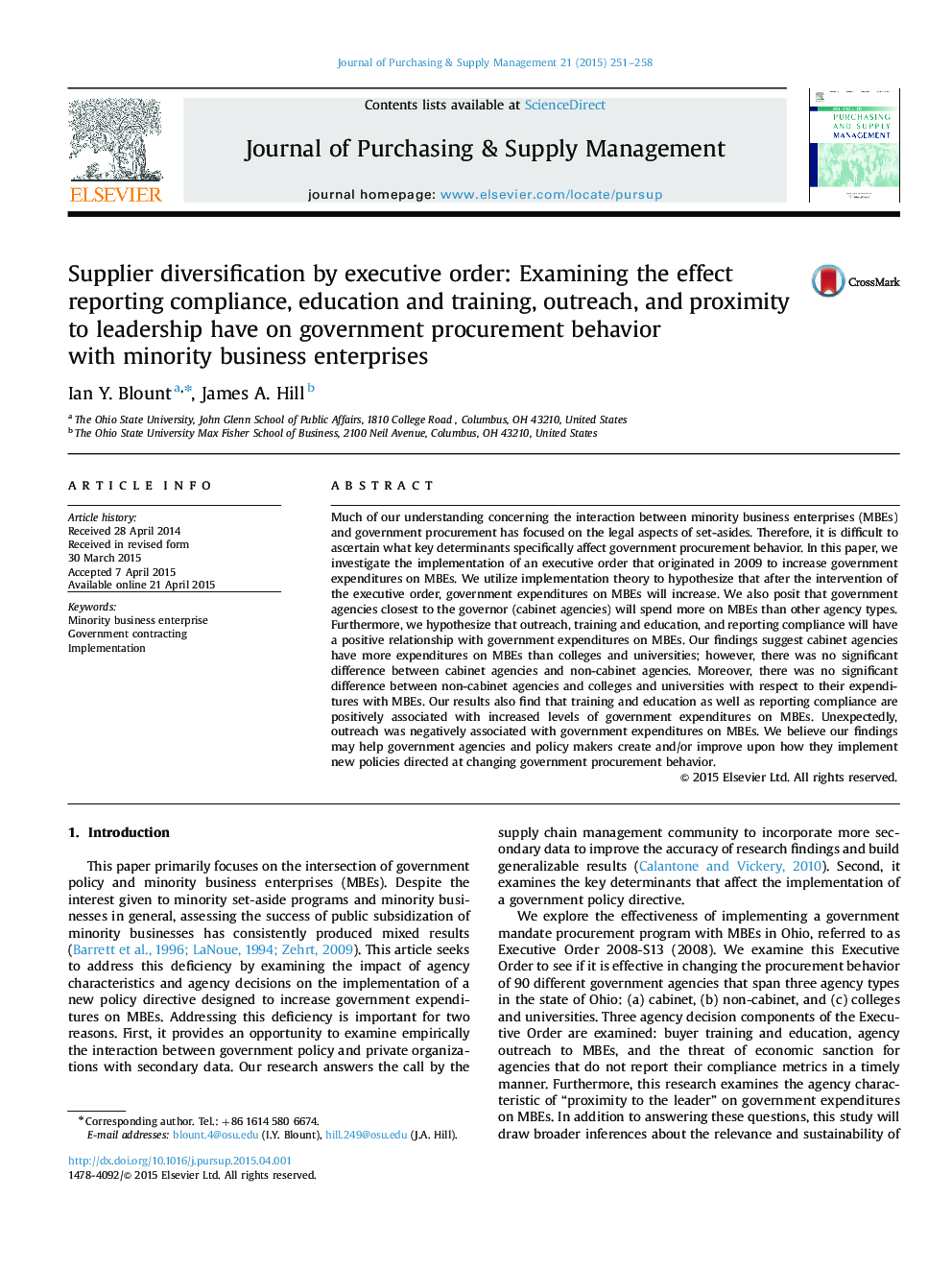| Article ID | Journal | Published Year | Pages | File Type |
|---|---|---|---|---|
| 1020728 | Journal of Purchasing and Supply Management | 2015 | 8 Pages |
•We examine the impact of an executive order on government procurement with MBEs.•Post executive order, government expenditures on MBEs increased.•Proximity to the leader partially explains the increase in expenditures on MBEs.•Training, education, and reporting compliance are positively related to spending.•Agency outreach has a negative relationship with agency expenditures on MBEs.
Much of our understanding concerning the interaction between minority business enterprises (MBEs) and government procurement has focused on the legal aspects of set-asides. Therefore, it is difficult to ascertain what key determinants specifically affect government procurement behavior. In this paper, we investigate the implementation of an executive order that originated in 2009 to increase government expenditures on MBEs. We utilize implementation theory to hypothesize that after the intervention of the executive order, government expenditures on MBEs will increase. We also posit that government agencies closest to the governor (cabinet agencies) will spend more on MBEs than other agency types. Furthermore, we hypothesize that outreach, training and education, and reporting compliance will have a positive relationship with government expenditures on MBEs. Our findings suggest cabinet agencies have more expenditures on MBEs than colleges and universities; however, there was no significant difference between cabinet agencies and non-cabinet agencies. Moreover, there was no significant difference between non-cabinet agencies and colleges and universities with respect to their expenditures with MBEs. Our results also find that training and education as well as reporting compliance are positively associated with increased levels of government expenditures on MBEs. Unexpectedly, outreach was negatively associated with government expenditures on MBEs. We believe our findings may help government agencies and policy makers create and/or improve upon how they implement new policies directed at changing government procurement behavior.
